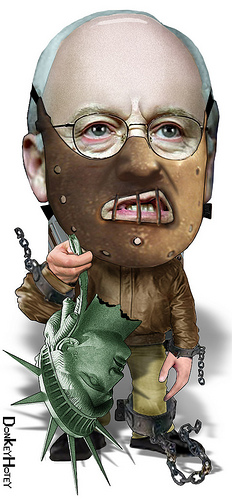 The troupe travels slowly across the countryside. Neither desert nor marsh nor twin rivers halt its advance. But still the traveling party proceeds with exquisite deliberation. It never skips over a single town or hamlet, no matter how small.
The troupe travels slowly across the countryside. Neither desert nor marsh nor twin rivers halt its advance. But still the traveling party proceeds with exquisite deliberation. It never skips over a single town or hamlet, no matter how small.
In the cool of the evening the troupe members gather at the nearest suitable venue: The community center, the mosque, the empty schoolyard. And there they put on a show of sorts. There are jokes. Magic tricks. Possibly karaoke, if there is electricity and enough young people attend.
But the closing act is always a man — the same elderly, frail man — speaking in English. About the war.
Iraqis by now are accustomed to foreigners appearing in their country to discuss the war: journalists, aid workers, government men, freelance do-gooders and general dingbats of every stripe. But this battered creature truly knows the story of the war. He pulls no punches in his remarks: Mistakes were made; sacrifices were demanded; savagery was met with greater savagery. He also has opinions about the current government, and about neighboring Iran — but heh-heh, he says, he’ll save those for next time.
But unlike all the other foreigners who parachute in to deliver an occasional lecture, this man knows the war is not over.
The old man faces the crowds with complete equanimity. The men without legs; the children without fingers; the women without children or husbands. Occasional epithets are thrown; also shoes. But nothing undermines the man’s firm conviction or his frail voice, issuing from a wheelchair at the end of most long days. (And when your sleep is haunted by shadows, greenish night-vision images projected onto blackness — then all of your days feel pretty long.)
Early on, the troupe was smaller — just the old man and his interpreter. Some former colleagues joined him briefly, offering emotional support. But they just tried to dissuade him from continuing onward.
For instance here was Rumsfeld, visiting the base outside Nasiriyah: “Dick, our job here is done. Now history will be our judge.” But the old man merely humored his former superior and subordinate, now a rich executive who sat on corporate boards and was fêted by think-tanks.
And here was Tony Blair, on a brief stopover in Basra: “Mr. Vice-President, you’ve done enough. These people need other help now. Let them bury their dead.” But the old man barely noticed the deferential Brit, a lawyer who was now a “strategic consultant” to international investment managers.
So the old man continued his quest, wheeled by Arab factota across the gouged ruins of Mesopotamia. As time passed he added more translators and performers and displaced persons to his group — any rootless individual who cared to cover the map at his glacial pace.
As expert and detailed as it was, the presentation he offered in the cool of each evening was rote, automatic. He could deliver it blindfolded — right down to the joke about Iran.
It was during the boiling Iraqi daytimes that the old man’s blood truly surged, his muscles tensed, his brow perspired. His motley companions spent each day investigating a tiny new section of the map. They excavated holes, unlocked warehouses, spelunked caves. While the old man himself interviewed landowners, who even through an interpreter sounded just like the Wyoming ranchers he represented at the dawn of his legislative career.
It was for younger men to remake the maps now. The old man could retire if he wished, he could settle near his family and a beach and modern hospitals with world-class transplant staffs. But instead he would continue his search. He would find the banned weapons or else his heart would give out first. These were the only choices he cared to consider anymore.
Image credit: By user DonkeyHotey via Flickr; used by permission of author according to Creative Commons License 2.0.